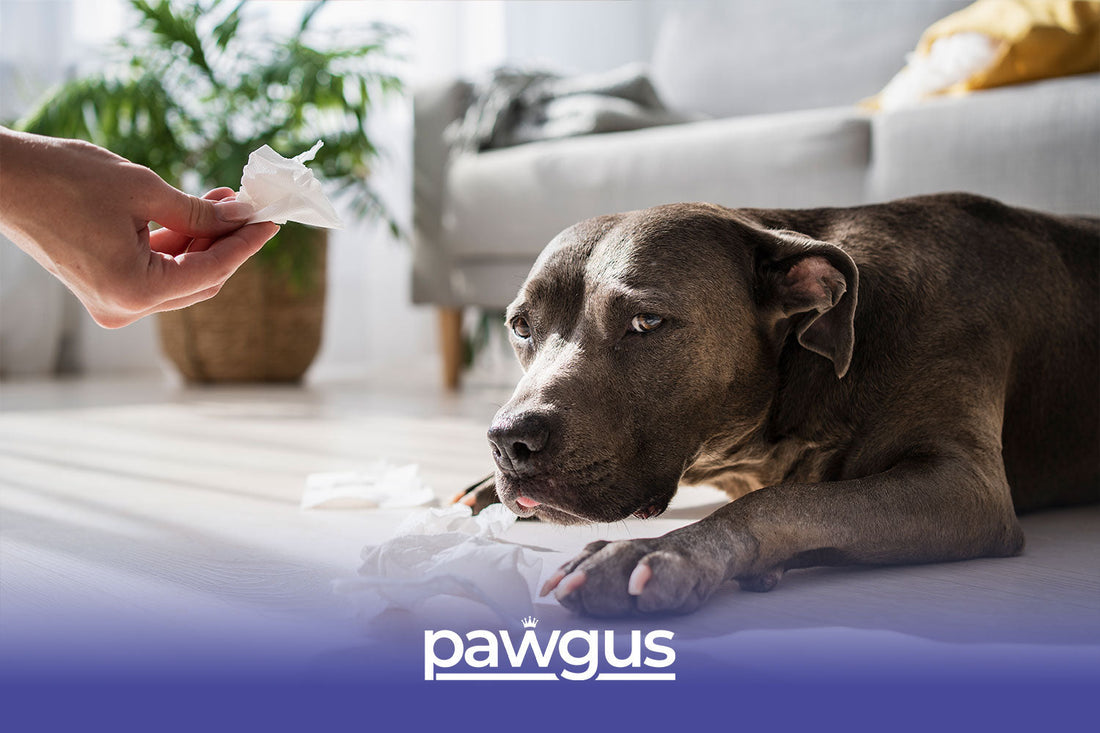
Poisoning in Dogs
Share
Dog poisoning is one of the biggest concerns for pet owners. This condition occurs when dogs are exposed to toxic substances, leading to severe health complications. Symptoms of dog poisoning often indicate emergencies requiring immediate intervention. In this blog post, we will explore the causes of dog poisoning, its symptoms, what helps in cases of poisoning, and how dogs can get poisoned. Additionally, we will discuss the essential steps to take in such emergencies to help you become more informed about protecting your dog’s health.
What Can Poison Dogs?
Dog poisoning can occur due to various reasons and can pose serious threats to a dog’s health. The most common sources of poisoning include food, plants, chemicals, and medications. Some of the most dangerous foods for dogs include chocolate, onions, garlic, grapes, and raisins. Additionally, certain plants, such as lilies and buttercups, can be toxic to dogs. Symptoms of dog poisoning often manifest as vomiting, diarrhea, excessive drooling, lethargy, and trembling.
When wondering, "What helps with dog poisoning?" the first step is to prevent your dog from ingesting any toxic substances and ensure a safe environment. The treatment methods vary depending on the type of toxin involved, making it crucial to identify the source of poisoning.
Symptoms of Dog Poisoning
Dog poisoning symptoms can indicate a serious health risk for your pet. Some of the most common symptoms include vomiting, diarrhea, excessive drooling, lethargy, tremors, and restlessness. Additionally, behavioral changes, loss of appetite, or excessive sleepiness may also be observed.
The time frame for symptoms to appear varies depending on the type and quantity of the toxic substance. If your dog exhibits any of these symptoms, you should seek immediate veterinary assistance. The treatment approach depends on the severity of the poisoning and the specific toxin involved.
How Soon Do Symptoms Appear?
The time it takes for dog poisoning symptoms to appear depends on the toxin type and dosage. Symptoms may surface within minutes after ingestion, but in some cases, it can take hours or even days. Some toxins act rapidly, while others take longer to show effects.
Therefore, recognizing poisoning symptoms such as vomiting, diarrhea, lethargy, and excessive drooling early is crucial. If you notice these signs in your dog, seek veterinary care immediately. Delayed symptoms can make the situation even more dangerous, making timely intervention essential for your dog’s well-being.
First Aid for Dog Poisoning
Providing quick and effective first aid in cases of dog poisoning can be life-saving. If you suspect your dog has been poisoned, stay calm and assess the situation. Symptoms such as vomiting, diarrhea, lethargy, or excessive drooling require urgent action. First, try to determine what your dog was exposed to.
If your dog has just ingested a toxic substance, contact your veterinarian immediately to ask if inducing vomiting is advisable. However, in some cases, inducing vomiting may be dangerous, so always follow professional advice.
If the poisoning symptoms are severe, take your dog to a veterinary clinic as soon as possible. Until you reach the vet, keep your dog calm in a comfortable environment. Acting quickly can minimize the effects of the toxin and potentially save your dog’s life.
How Is Dog Poisoning Treated?
Dog poisoning treatment depends on the severity of the situation and the type of toxin involved. The treatment process is typically handled by a veterinarian and requires immediate intervention. Initially, the vet will assess your dog’s medical history and the type of toxin exposure. Symptoms such as vomiting, diarrhea, lethargy, excessive drooling, and tremors may indicate poisoning.
Treatment varies based on the type of toxin. If ingestion was recent, the vet may induce vomiting or perform gastric lavage to flush out the toxin. Additionally, activated charcoal may be used to prevent toxin absorption in the intestines. In some cases, intravenous fluids and electrolyte therapy may be necessary to support recovery and flush out the poison from the system.
Post-Treatment Care at Home
Following dog poisoning treatment, adhering to your veterinarian’s instructions is crucial. Proper home care includes creating a comfortable recovery space and minimizing stress.
Monitoring your dog’s diet is essential during the recovery process. Your vet may recommend specific foods that are easier on the stomach. You can also consider using probiotics to support digestion.
Limiting activity and providing adequate rest will aid recovery. Keep an eye on your dog’s mood and overall condition, and contact your veterinarian if you notice any abnormalities.
How to Prevent Dog Poisoning
Preventing dog poisoning is a vital responsibility for pet owners. There are several precautions you can take to minimize the risk.
First, identify and store toxic substances safely out of your dog’s reach. Household chemicals, medications, and certain plants can pose significant risks.
During walks, ensure that your dog does not eat unknown substances from the ground. Many poisoning cases occur due to dogs consuming foreign objects or discarded food outdoors. Keeping your dog under control during walks reduces this risk.
A healthy diet also plays a crucial role in preventing poisoning. Avoid feeding your dog human food, as some items, such as chocolate, grapes, and onions, are toxic to dogs.
Be mindful of the chemicals you use at home or in your garden. Common poisoning symptoms, such as vomiting, diarrhea, and lethargy, should not be ignored. Regular vet check-ups can also help detect potential health concerns early and keep your dog safe.
By taking these precautions, you can significantly reduce the risk of dog poisoning and ensure your pet stays healthy and happy.
